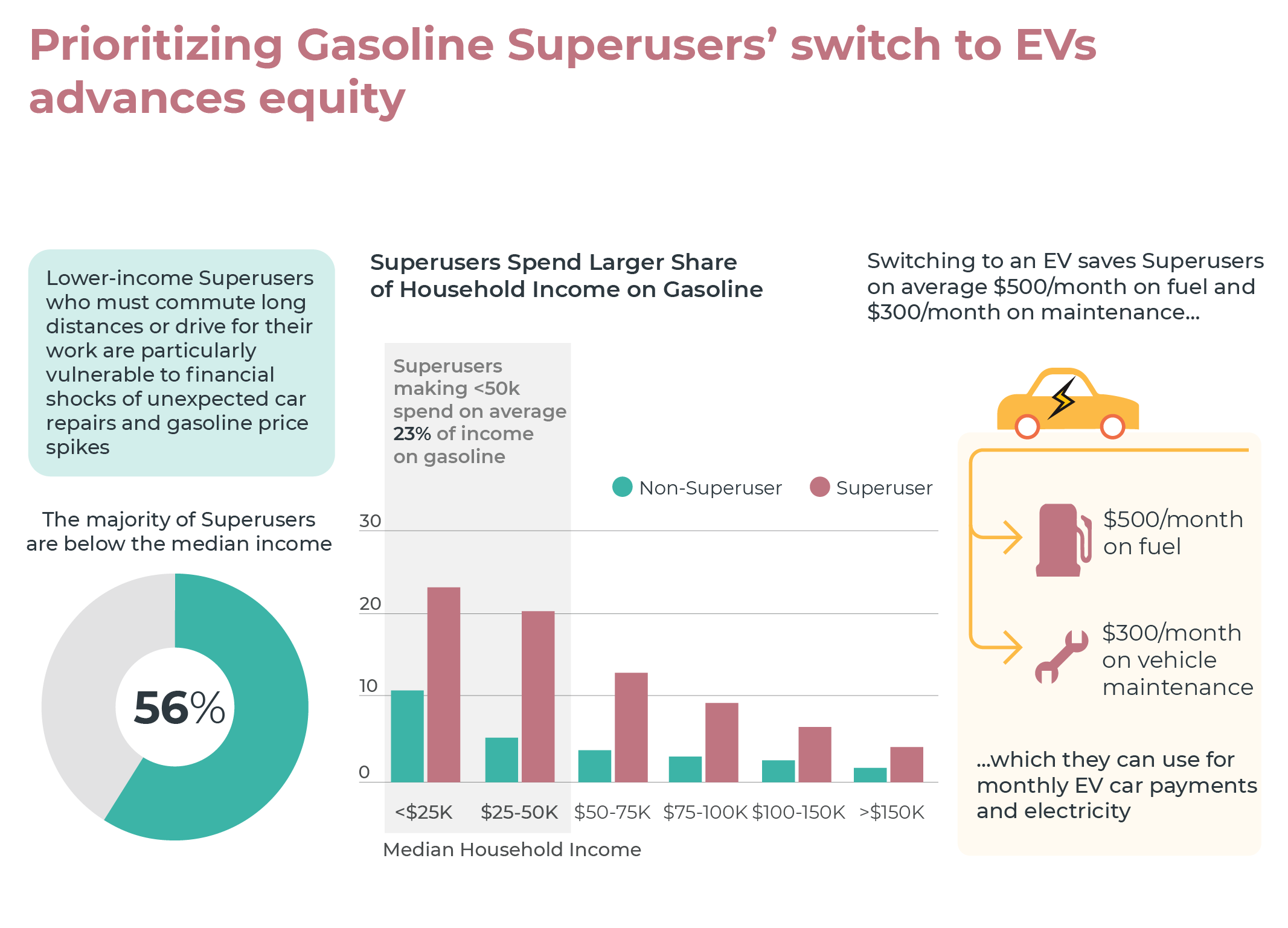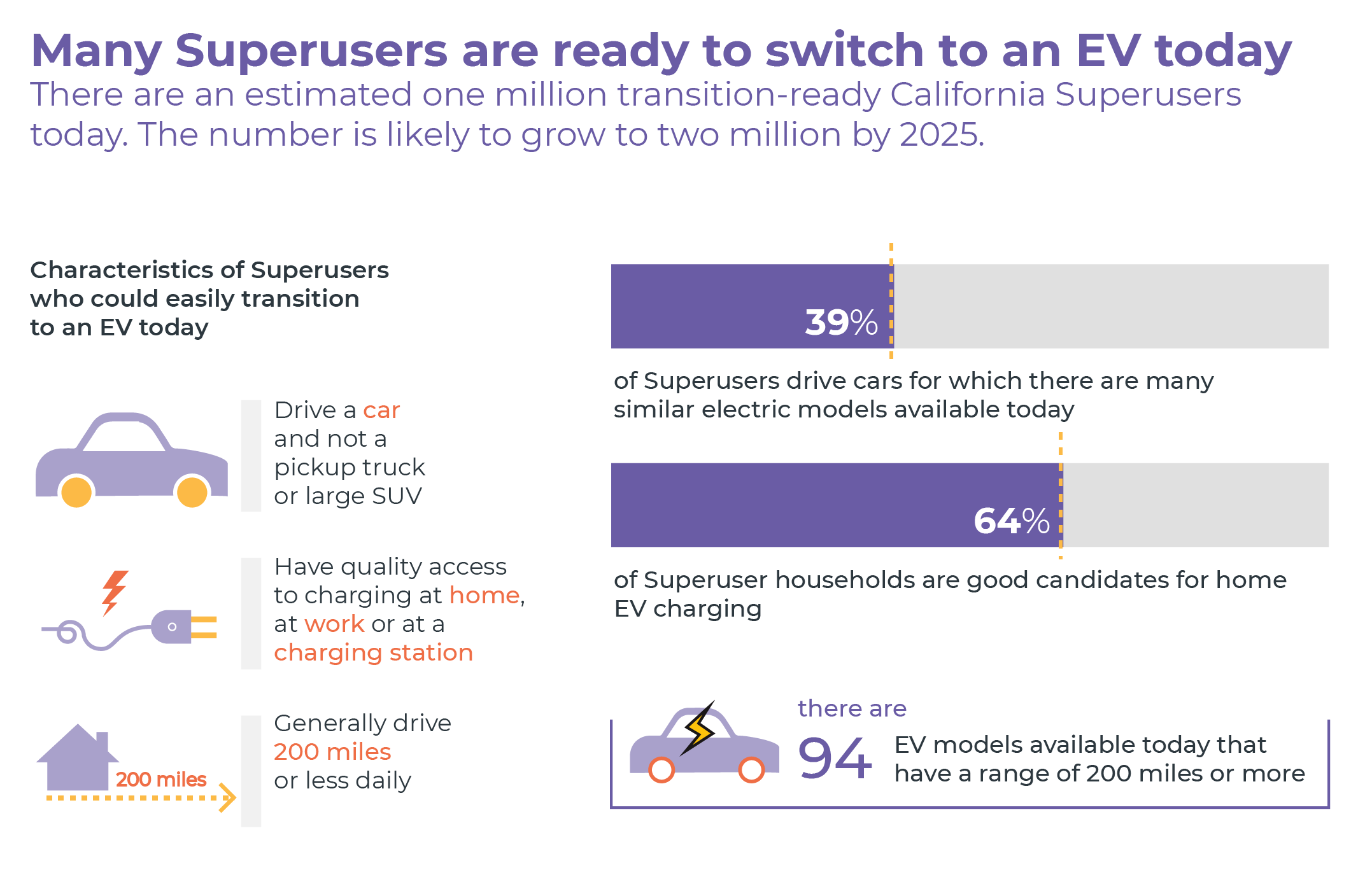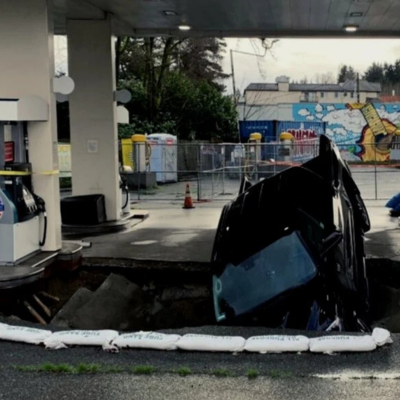GASOLINE SUPERUSERS 2.0: Accelerating an efficient and equitable EV transition
Coltura’s 2023 Gasoline Superusers report outlines a novel data-driven approach to cut vehicle emissions more quickly, efficiently, and equitably by prioritizing the biggest gasoline users (“Superusers”) for the switch to EVs.
This approach:
- Reduces gasoline consumption faster than current policies.
- Advance equity by helping lower-income Superusers, who see the greatest relative financial benefit.
- Supports data-driven gasoline displacement policies, investment, program design, and measurement.
Based on millions of California vehicle records and other data sets, this report illuminates for the first time the geographic, demographic, financial, and vehicular details of consumer gasoline use down to the zip code level.
We need data-driven policies that maximize gasoline reduction and equity

Gasoline reduction should be a primary goal and metric for state and local governments.

Prioritize lower-income Superusers for EV incentives, outreach and education.

Use data to guide policies and investments for gasoline displacement.
New Superuser Tools
Learn More About Superuser bills
Superuser Approach In the Press
Superuser approach featured in Mother Jone Magazine and USA Today
“Coltura’s research demonstrates the need to free 3 million Californians from their heavy reliance on expensive, polluting gasoline. That’s why we support Assemblymember Ting’s AB 1267, which would target electric-vehicle incentives to those who most need them — low and moderate-income drivers who use the most gasoline.”
–Bill Magavern, Policy Director, Coalition for Clean Air
“This report demonstrates that for an equitable transition to EVs we must prioritize the highest gasoline users. Among Latino/es, who earn less and face longer commutes than other Californians, and are more likely to directly face health impacts from vehicle pollution, incentivizing a transition away from gasoline is especially urgent.”
–Andrea Marpillero-Colomina, Sustainable Communities Program Director, Green Latinos
“Coltura’s report shows that rural ‘super users’ are a crucial segment for reducing gasoline-related carbon emissions. Data-rich analyses like this can help us develop strategies for transitioning rural drivers to electric vehicles to reduce their gasoline burden and maximize the climate benefits of EV adoption. The Rural Climate Partnership encourages policymakers to prioritize investments and outreach to reach this critical segment of high-mileage drivers.”
–Josh Ewing, Director, Rural Climate Partnership
“Coltura’s updated analysis highlights the financial burdens faced by those who drive the most, especially in small-town America. Educating individuals about how electric vehicles help save on costs over time and significantly reduce tailpipe emissions is key to ensuring the benefits of electric vehicles are accessible to all Americans.”
–Stuart Gardner, Program Director, Generation 180
“Current EV subsidy is disproportionately benefiting wealthier households. They are not maximizing climate benefits. Or cutting air pollution. Or energy security. Or fairness. Or normalizing EV use. We can, and should, do better. The superuser approach can help us avoid the most emissions; while helping the most gasoline-burdened drivers transition to EVs.”
–Kristin Eberhard, Director of Climate Policy at the Niskanen Center
Our third report, “Gasoline Superusers 3.0,” published in 2024, reveals what a new nationwide dataset tells us about Americans’ consumption of gasoline. Geographic, demographic, financial, and vehicular details of consumer gasoline use are illuminated down to the census block group level.
Released in conjunction with the EV Adoption Forecaster, it demonstrates how policymakers and businesses can reduce gasoline use and vehicle emissions more quickly, efficiently, and equitably with new, data-driven strategies prioritizing Gasoline Superusers. The report has been covered by The New York Times.
In 2024 Coltura also published “Country Crossroads“, a report that illuminates the hidden challenges facing “rural Gasoline Superusers” — a small subset of rural motorists accounting for almost 13% of the US’s gasoline consumption despite comprising less than 4% of the population.
Learn from our free webinar about how the gasoline superuser approach can help reduce car pollution faster and more equitably.
Our first report, “Gasoline Superusers 1.0,” published in 2021, provided the first in-depth look at the data available on drivers in the top 10% of gasoline consumption, so-called “gasoline superusers.” It analyzed EV incentives and other policy options for transitioning superusers to EVs and presents a model for achieving significant cuts in gasoline consumption by 2030. The report has been covered by Bloomberg, the Niskanen Center and JP Morgan, among others.















